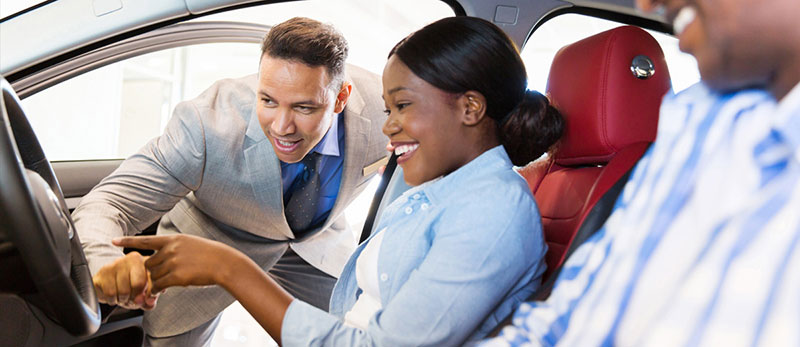Let’s say you find a Toyota Harrier on ZoomTanzania Marketplace that you are interested in buying. What do you do?
- 1. Why are you selling the car?
- 2. What is the mileage?
- 3. How long have you owned it?
- 4. Did you buy it new or used?
- 5. Are you the person who drove it the most?
- 6. Has it been in an accident?
- 7. What’s the overall condition of the car?
- 8. Are there any parts that need replacement or fixing?
- 9. Do you have service records?
Yes, you contact the seller. But not to set up an appointment to see the vehicle, instead, you should ask questions about the car.
The initial questions you ask will help you determine whether or not this is a deal you want to pursue further, and can save you time and transport expenses going to see a car that you end up not wanting.

Depending on the attitude of the seller, these types of conversations can be awkward and intimidating if you are not prepared. So, to get you ready, we have the 9 questions you should always ask a car seller when speaking for the first time.
Why are you selling the car?
The way this question is answered is as important as the answer itself. If the seller is being secretive and unclear, then there is something important about the car that they don’t want to tell you: either it’s been in an accident, has faulty parts that need expensive repairs or something else that makes it undesirable to them (meaning that it’ll probably be undesirable to you too).
What is the mileage?
While people have their own personal preferences of how high or low the mileage of a car should be, it’s best to consult a mechanic to determine if the mileage on the used car you are interested in is ok. However, if the mileage is really high, let’s say, above 32,000 km / year, then this indicates that the car is been driven a lot and may be worn out because of use (check out consumer reports for details). Whereas, if the mileage is really low, then out of curiosity, ask why? Does the owner have a short commute or has the car not been used too much because of mechanical issues.
How long have you owned it?
While you should pay greater attention to the year the car was made, and ideally not buy a car model that is more than 10 years old – the length of ownership also matters. This is pretty straight forward, the longer the person has had the car, the more use it’s had.
Did you buy it new or used?
If used, how why did the previous owner sell it?
Ideally, the car seller would be the first owner of the vehicle, but sometimes people buy and sell cars quickly for a number of reasons. So, if the car seller is not the first owner what you need to do is figure out why the previous owner(s) sold the car? Multiple owners across years could be an indication that the car is faulty, as people who buy it, end up wanting to get rid of it.
If new, was it ever recalled?
Sometimes car makers will recall car models to make some changes, usually regarding safety features. Take note if such changes were made, or still need to be made on the car. You may not want to deal with the inconvenience of a recall (as you won’t have your car for a while). Moreover, some people are just not comfortable with buying a car that had safety glitches or other engineering mistakes in the first place.
Are you the person who drove it the most?
When in the process of buying a used car, you want to meet with the car’s main users to determine what type of drivers they are. For instance, if you are interested in a car that is owned by a 40-something working mother who seems to be a cautious and responsible driver, you may not think to pay close attention to the condition of the car (though you should). However, if you learn that the car is mainly driven by her 17-year-old speed-crazy son; then you’ll probably be more skeptical. And you could find that the brakes and tires are worn out because of the son’s fast driving.
Has it been in an accident?
If the car had a minor accident and the only damage is a few scrapes and dents, then you shouldn’t worry. Nevertheless, a rule of thumb is not to buy a used a car that has been in a serious accident, it will usually continue to cause you problems as it has its current owner. However, if you are still considering it, make sure to ask the following follow-up questions:
- How did the accident happen? (This could give you insight on the type of driver the seller is)
- What was the extent of the damage and did you get it repaired (how much did it cost)?
- Which mechanic did the repairs? (You should research the mechanic to see if they are credible)
What’s the overall condition of the car?
In addition to its superficial appearance:
- Does it have any mechanical issues?
- Does the seller have any particular problems when driving, for instance, takes 30 seconds to start, the A/C doesn’t work, one window doesn’t roll up properly etc
- Does it make any unusual noises?
- How is it equipped? Does it have a working A/C, radio, transmission type, key lock, airbags, seats, mirrors, cruise control etc
Are there any parts that need replacement or fixing?
This question should help you decide if you are willing to take on the additional costs of repair, if you want to negotiate the price down to cover the costs, or if the car isn’t worth it at all.
Remember to be reasonable, having a broken radio isn’t the same as a faulty engine. So don’t try and aggressively argue the price down too low for minor repairs, save that for the big issues (if they are any).
Also, don’t try and negotiate price during the initial conversation. Wait until you inspect the car and get it checked out by a mechanic.
Do you have service records?
The service records will tell you whether or not the car has been regularly cared for and well maintained. Typically, a car should be serviced every 5,000 km, if this is not the case for the vehicle you want to purchase, it could be a sign of poor maintenance by the current owner. Too often, people buy used cars in seemingly great condition, but then they start to have problems a couple of months after use. So, knowing the previous owner’s maintenance habits is critical.
Ask, and you shall receive
Here’s the thing, many of us are not good at asking questions. Whether it’s at school, job interviews or buying a house, we usually play it safe so as not to make other people uncomfortable. But while we are trying to be ‘respectable’, failure to ask questions can cost us greatly, especially when it comes to buying a used car. So hopefully, once you start finding cars that you are interested, these set of questions will help you navigate that potentially tense phone conversation with the seller.
You got this!
